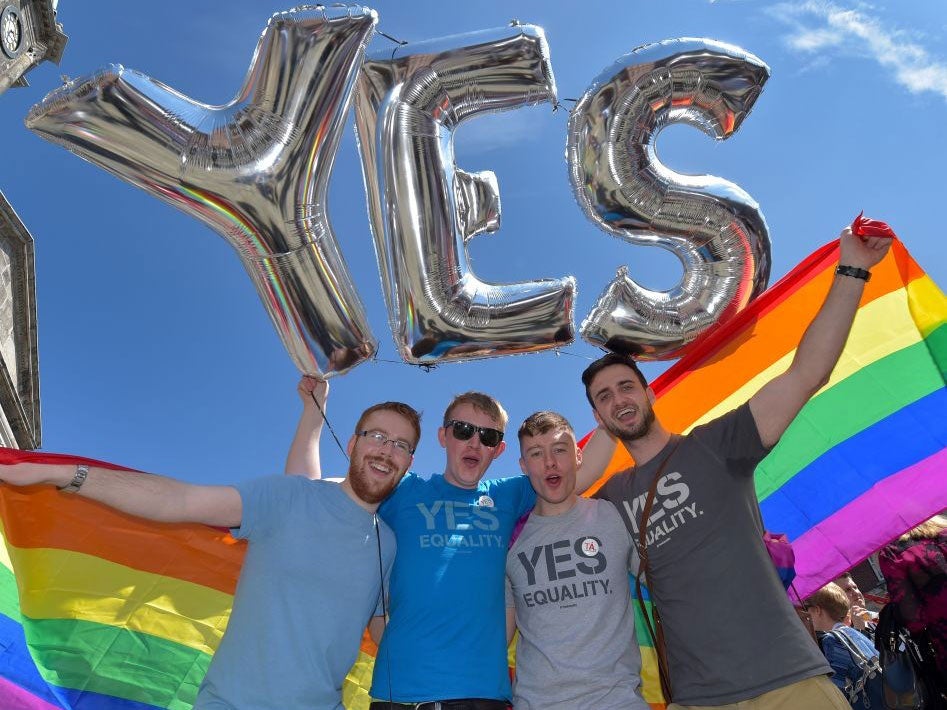The lessons we can learn from Ireland's gay marriage referendum
Morality and religion have been confused for far too long

Your support helps us to tell the story
From reproductive rights to climate change to Big Tech, The Independent is on the ground when the story is developing. Whether it's investigating the financials of Elon Musk's pro-Trump PAC or producing our latest documentary, 'The A Word', which shines a light on the American women fighting for reproductive rights, we know how important it is to parse out the facts from the messaging.
At such a critical moment in US history, we need reporters on the ground. Your donation allows us to keep sending journalists to speak to both sides of the story.
The Independent is trusted by Americans across the entire political spectrum. And unlike many other quality news outlets, we choose not to lock Americans out of our reporting and analysis with paywalls. We believe quality journalism should be available to everyone, paid for by those who can afford it.
Your support makes all the difference.The Irish referendum vote in favour of gay marriage was thrilling. The landslide for the “yes” campaign clearly meant more than a victory for freedom, equality and humanity.
It was another example of ordinary people taking control in a democracy. Too many lack that freedom around the world, so to see voting being used as a positive force for change is a cause for celebration. And there are lessons for us in the UK.
I’m not gay, and have never been oppressed on the grounds of my sexuality, so I can’t truly empathise with the liberation that such a quantum shift in both attitudes and the law entails. But, I can see and hear what it means to my gay friends and family, and I was brought up in Catholicism. Believe me, I get it.
Most of all, I “get” how morality and religion have been confused for far too long – with disastrous consequences for any “non-believers”. What I could not understand in my more impetuous youth was why gay friends and family actually wanted to be part of a Catholic Church that rejected them.
Part of the answer lies in looking at Ireland itself – if ever there was a country where morality and politics got confused with religion. There was a second momentous event there last week: Prince Charles shaking hands with Sinn Féin’s Gerry Adams, a sight once unimaginable given the IRA’s murder of Charles’s beloved great uncle, Lord Mountbatten.
Charles expressed eloquently the personal journey that brought him to that handshake: “Through this dreadful experience, I now understand in a profound way the agonies borne by so many others in these islands, of whatever faith, denomination or political tradition,” he said.
“We need no longer be victims of our difficult history with each other. Without glossing over the pain of the past, we can integrate our history and memory in order to reap their subtle harvest of possibility.”
In the wake of Charles’s message, one looks in hope to the likes of Archbishop of Dublin, Diarmuid Martin, who said the clear “Yes” vote meant the Church had to reconnect with younger people.
Now, the victors should reach out and help reunite the nation. The lessons from Ireland this week are surely clear: you do not make peace with friends. You can only make lasting peace with your enemies.
Join our commenting forum
Join thought-provoking conversations, follow other Independent readers and see their replies
Comments